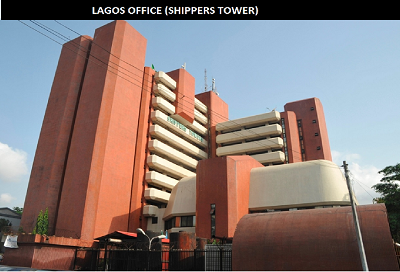Stakeholders Mourn State Of Nigeria’s Shipping Industry

The President of Shippers Association Lagos State, Rev Jonathan Nicol has called on maritime stakeholders to figure out ways to resolve the numerous problems facing the Nigerian shipping sector.
Nicol made this emotional plea while speaking at a one-day sensitization seminar organized by the Nigerian Shippers Council (NSC) with the theme,“Industry Best Practices and Ethical Standard Requirement in the Freight Forwarding Profession in Nigeria”.
The auditorium became extremely quiet as Rev. Nicol started analyzing the state of affairs at the Nigerian ports. He started by announcing that the naira had fallen to 385 to a dollar and this has put the business of those in the shipping industry at a low ebb.
Prior to Nicol’s speech, the conference room had become a tensed as Customs Agents and Freight Forwarders used the platform to argue over which body was more relevant.
“As we speak, a dollar has risen to 385 naira. This means the volume of cargo will continue to deplete. Over 60% of cargo destined for Nigeria is going to Cotonou ports. We are set to lose more money, more jobs will also be lost, yet we are arguing”, he blurted out.
Nicol admonished both parties to come together to settle their differences with “kolanuts” and “ogogoro”. He also questioned the possibility of the Nigeria Customs Service generating the N1trn target given to them by the federal government if business at the ports continues to decline.
Meanwhile, Chief Chukwuemeka Agu who spoke on behalf of the Director Commercial Shipping Services, Mrs. D. Shall-Holma, revealed that Shippers Council had met with the Customs, NPA, NIMASA and related agencies to utilize a standard regulatory procedure for all agencies at the ports.
“One of the problems in our agencies today is that there is no standard operating procedure. Hence the Shippers Council, NIMASA, Customs, NPA, UNAD and other related agencies met and we agreed that each agency should have a standard operating procedure” Agu said.
Earlier, Mr. Emeka Akabogu while delivering the lead paper had stressed that the Council for the Regulation of Freight Forwarding in Nigeria (CRFFN) should be involved in the CEMA Act and similarly the Customs should be involved in the CRFFN Act.
Akabogu noted that the freight forwarding business was crucial to Nigeria because the nation thrives mainly on importation and he implored freight forwarders to refrain from withholding sensitive information from their clients.
By Kenneth Jukpor







